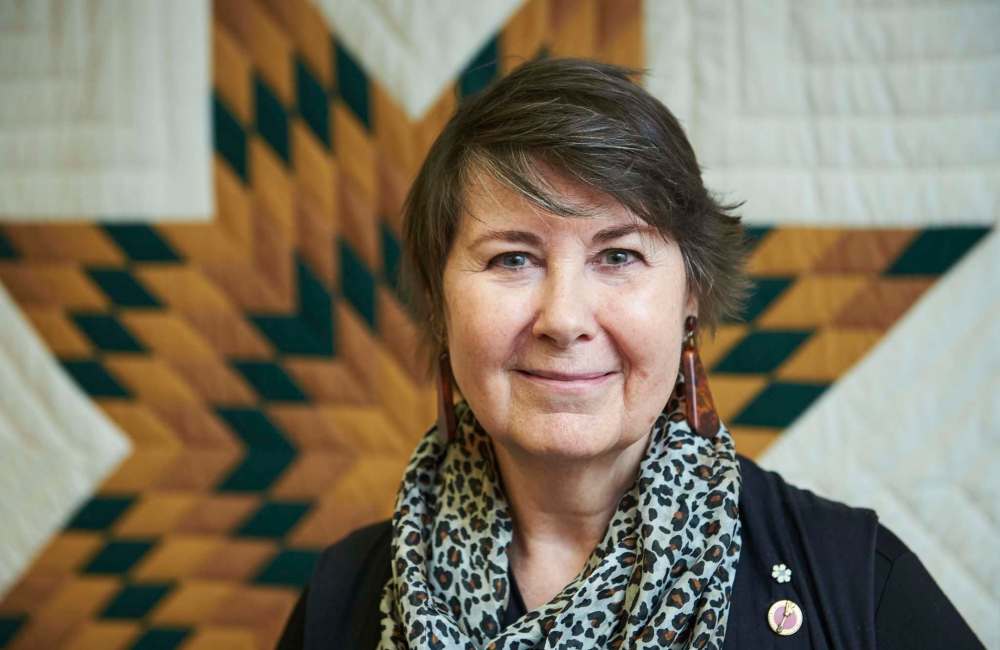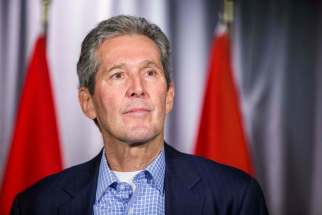Senator renews push to protect staffers from harassment
Read this article for free:
or
Already have an account? Log in here »
To continue reading, please subscribe:
Monthly Digital Subscription
$0 for the first 4 weeks*
- Enjoy unlimited reading on winnipegfreepress.com
- Read the E-Edition, our digital replica newspaper
- Access News Break, our award-winning app
- Play interactive puzzles
*No charge for 4 weeks then price increases to the regular rate of $19.00 plus GST every four weeks. Offer available to new and qualified returning subscribers only. Cancel any time.
Monthly Digital Subscription
$4.75/week*
- Enjoy unlimited reading on winnipegfreepress.com
- Read the E-Edition, our digital replica newspaper
- Access News Break, our award-winning app
- Play interactive puzzles
*Billed as $19 plus GST every four weeks. Cancel any time.
To continue reading, please subscribe:
Add Free Press access to your Brandon Sun subscription for only an additional
$1 for the first 4 weeks*
*Your next subscription payment will increase by $1.00 and you will be charged $16.99 plus GST for four weeks. After four weeks, your payment will increase to $23.99 plus GST every four weeks.
Read unlimited articles for free today:
or
Already have an account? Log in here »
Hey there, time traveller!
This article was published 22/01/2020 (2148 days ago), so information in it may no longer be current.
OTTAWA — A Manitoba senator is bracing for more pushback as she doubles down on her call for transparency of sexual harassment allegations made against her colleagues.
Marilou McPhedran said she plans to spend the rest of her term shining a spotlight on the issue.
Three years after becoming a senator, McPhedran says the Red Chamber is far behind any government institution or company where she’s worked.

“Nothing I’ve ever experienced was predicated on white, male privilege the way the Senate was — and still, to a degree, is,” she told the Free Press.
“The self-governance is deeply flawed. I think it feeds and nourishes secrecy, inadequate accountability and obscurity. That in turn, feeds a small number of people making decisions, where no record is kept, and it allows for potentially life-destroying decisions that are unappealable in any way.”
McPhedran made national news in February 2018 for setting up a confidential email account so victims of harassment by senators could seek legal help.
The move was partly in reaction to the resignation of senator Don Meredith after the ethics officer found he’d engaged in a sexual relationship with a 16-year-old.
At the time, McPhedran said harassment was pervasive in the Senate, especially by senators toward their staff.
Next month, McPhedran will ask senators to vote for a ban on non-disclosure agreements involving people who accuse senators of harassing them. She said she has found out that numerous agreements have been signed.
The Senate is only obligated to disclose when it’s made six-figure payments for legal fees, by simply stating who received a payment, when their name is not confidential; often this is payment to a lawyer.
McPhedran tried unsuccessfully in 2018 to have the Senate administration specify whether it had had sexual-harassment complainants sign non-disclosure agrements since 2006, and if so how much had been paid to those complainants.
A Senate spokeswoman said she couldn’t discuss such agreements, which are lumped together with general confidentiality clauses for contractors and closed-door meetings to plan parliamentary travel or expenses.
“Generally, settlement agreements contain confidentiality clauses. As such, we are not in a position to discuss the nature of the terms of settlement agreements reached by the Senate,” wrote Alison Korn.
She said some victims of harassment prefer non-disclosure agreements, in order to protect their own information.
Senators have been working on updating their harassment policy in light of the Meredith case in 2018. The policy is expected to be debated next month.
McPhedran said it must include more public scrutiny and oversight.
Prime Minister Justin Trudeau appointed McPhedran to the Senate because of her career in human-rights law and weeding out sexual abuse through institutions such as regulatory colleges for doctors.
He had already cut formal ties between senators and his Liberal party in an attempt to cut down on partisanship, and McPhedran says Trudeau wanted someone who could help change the culture of the Senate.
For McPhedran, that has meant lobbying for more scrutiny of expenses, a taboo subject since the chamber’s 2012 spending scandal.
In 2017, McPhedran appealed an expense claim four times, she said, in order to get it reviewed at a public committee so the public could see the process.
The $1,939.14 claim involved a flight to Winnipeg for a Manitoba Youth Parliament event. The claim was blocked due to a rule that prohibits reimbursement of travel claims for fundraisers that aren’t organized by the Red Chamber — in this case, for a scholarship.
The matter devolved into a shouting match during a televised hearing, when the committee chairman implied one of McPhedran’s former staff, who remained unnamed, claimed she had misstated the reasons for the travel expense.
Senators also blocked McPhedran’s attempt to use her office budget to pay a lawyer to confidentially assess harassment allegations.
More recently, Conservative senators, such as Quebec’s Leo Housakos, have accused McPhedran of using parliamentary privilege — which exempts senators from some parts of libel law — to “personally attack” her colleagues.
“There are some very significant gaps between values that are held by many of the newer senators, and values that are articulated and acted upon by senators that have been there for much longer,” McPhedran said.
In late 2017, a year into the job, she said she’d considered quitting the Senate and going back to university jobs.
Some of her former students from Winnipeg, whom she’d accompanied to the United Nations, told her to keep her head in the game, and to effect change in one of Canada’s highest institutions.
“I’ve turned that corner; I’m not going back,” said McPhedran, 68, who will retire in July 2026.
“If I manage to last to (age) 75, I’m gonna be working on this.”
dylan.robertson@freepress.mb.ca
History
Updated on Thursday, January 23, 2020 11:47 AM CST: edits sentence














